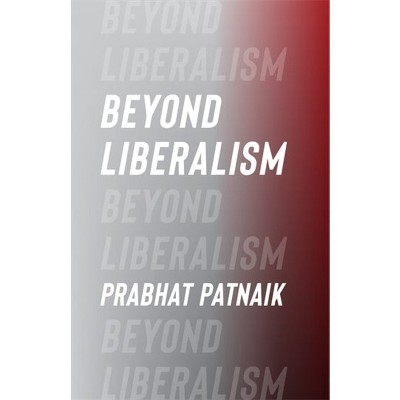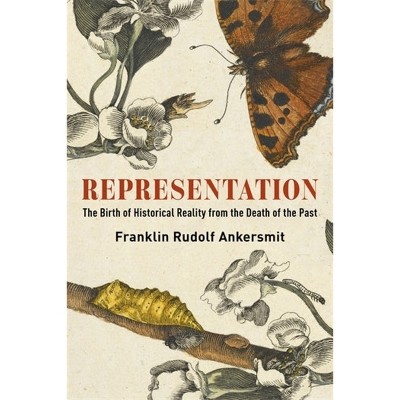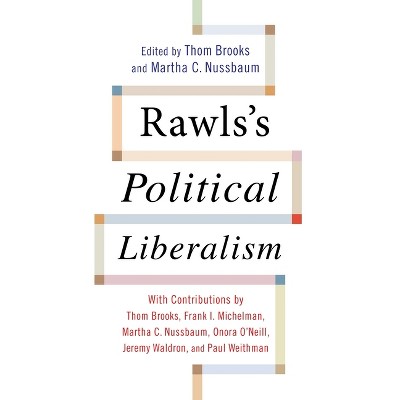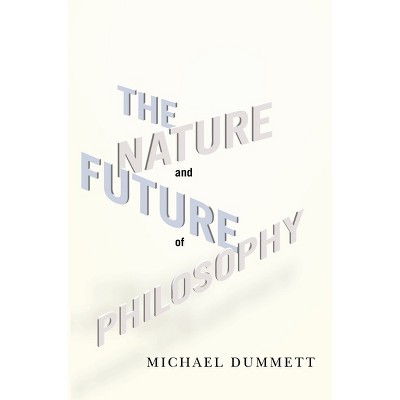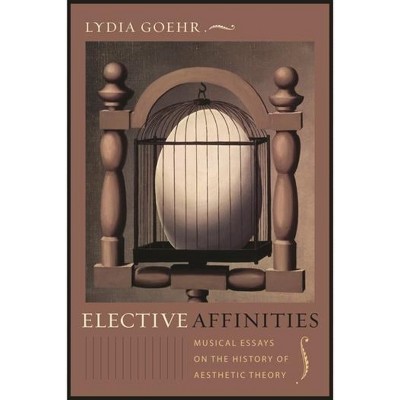Freedom and Neurobiology - (Columbia Themes in Philosophy) by John Searle (Paperback)

About this item
Highlights
- Our self-conception derives mostly from our own experience.
- About the Author: John Searle is Slusser Professor of Philosophy at the University of California, Berkeley.
- 128 Pages
- Philosophy, Free Will & Determinism
- Series Name: Columbia Themes in Philosophy
Description
About the Book
In Freedom and Neurobiology, John Searle discusses the possibility of free will within the context of contemporary neurobiology. He begins by explaining the relationship between human reality and the more fundamental reality as described by physics and chemistry. Then he proposes a neurobiological resolution to the problem by demonstrating how various conceptions of free will have different consequences for the neurobiology of consciousness. In the second half of the book, Searle applies his theory of social reality to the problem of political power, explaining the role of language in the formation of our political reality. Searle focuses on the institutional structures that organize, empower, and regulate our lives-money, property, marriage, government-and the way in which language constitutes them. He argues that consciousness and rationality are crucial to our existence and that they are the result of the biological evolution of our species. In conclusion, he addresses the problem of free will within the context of a neurobiological conception of consciousness and rationality, and he addresses the problem of political power within the context of this analysis.
Book Synopsis
Our self-conception derives mostly from our own experience. We believe ourselves to be conscious, rational, social, ethical, language-using, political agents who possess free will. Yet we know we exist in a universe that consists of mindless, meaningless, unfree, nonrational, brute physical particles. How can we resolve the conflict between these two visions?
In Freedom and Neurobiology, the philosopher John Searle discusses the possibility of free will within the context of contemporary neurobiology. He begins by explaining the relationship between human reality and the more fundamental reality as described by physics and chemistry. Then he proposes a neurobiological resolution to the problem by demonstrating how various conceptions of free will have different consequences for the neurobiology of consciousness. In the second half of the book, Searle applies his theory of social reality to the problem of political power, explaining the role of language in the formation of our political reality. The institutional structures that organize, empower, and regulate our lives-money, property, marriage, government-consist in the assignment and collective acceptance of certain statuses to objects and people. Whether it is the president of the United States, a twenty-dollar bill, or private property, these entities perform functions as determined by their status in our institutional reality. Searle focuses on the political powers that exist within these systems of status functions and the way in which language constitutes them. Searle argues that consciousness and rationality are crucial to our existence and that they are the result of the biological evolution of our species. He addresses the problem of free will within the context of a neurobiological conception of consciousness and rationality, and he addresses the problem of political power within the context of this analysis. A clear and concise contribution to the free-will debate and the study of cognition, Freedom and Neurobiology is essential reading for students and scholars of the philosophy of mind.Review Quotes
This small book speaks volumes. It shows why John Searle is the most widely read of philosophers of mind today and why he has a particularly large following among brain scientists. Searle here illustrates that he owes his success to two fundamental talents rare among philosophers. First, he is eminently readable. He is not simply interested in exposing his vast erudition but in explaining in straightforward entertaining prose what the issues of free will, language, and brain sciences are about. Second, Searle is eminently empirical. He does not see philosophy of mind as a rarefied discipline but one that is continuous with physics, biology, and brain science. Searle sees the task of philosophy as posing problems in precise enough terms to permit of an empirical, scientific solution.
These two features are brilliantly in evidence in this marvelous book. But what makes these lectures particularly inviting for readers not yet addicted to Searle is that he provides here--for the first time--a broad introduction to the complete Searle. He combines in a thin volume the two major interests of his career: his early focus on language and his current focus on consciousness and free will. This is an irresistible treat for both the uninitiated and the cognoscenti.--Eric Kandel, Nobel Laureate, Columbia University[A] slim, elegantly written and intellectually rigorous volume.-- "British Journal of Psychiatry"
A brief clearly articulated account by one the world's foremost philosophers.--Henry Stapp "Journal of Consciousness Studies"
Clear and engaging.--Randall J. Russac "Science Books and Films"
Perhaps most importantly, it sets forth a suggestive vision of the systematic connections across various philosophical fields and avenues for their further exploration.--Daniel K. Silber "Philosophy in Review"
Searle is a beacon of accessible expertise, a throwback to a time when philosophy was part of the public debate.--David Papineau "Times Literary Supplement"
This engaging small volume serves as a token reminder of how masterfully Searle manages to combine philosophical innovation with clarity of prose.--Constantine Sandis "Metapsychology"
This book is a short but powerful presentation of views of the author... [it] includes interesting new arguments and is very useful... as an excellent and exceptionally clear summary of the free-will debate.--Joelle Proust, director of research, Institut Jean-Nicod, Paris
About the Author
John Searle is Slusser Professor of Philosophy at the University of California, Berkeley. He is the author of sixteen books, including Speech Acts; Expression and Meaning; Intentionality; Minds, Brains, and Science; The Rediscovery of the Mind; The Construction of Social Reality; Rationality in Action; and Mind: An Introduction. His works have been translated into twenty-one languages, and in 2004, he was awarded the National Humanities Medal.Shipping details
Return details
Trending Poetry






